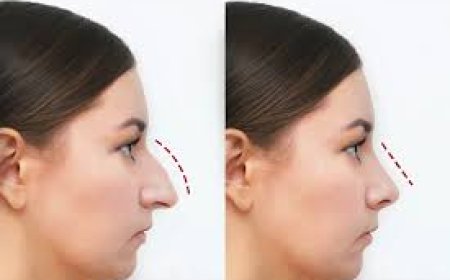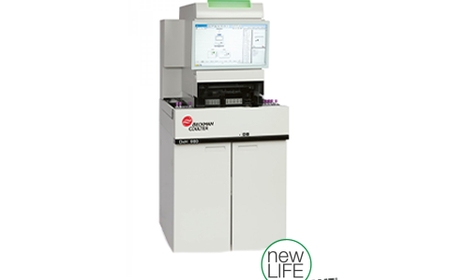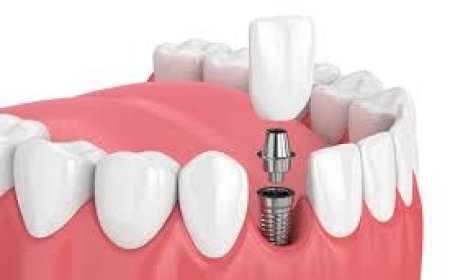Are You Ignoring These 19 Signs of Thyroid Problems? Here's What to Watch For
If you’ve noticed several signs from this list, don’t delay — schedule a thyroid function test and start taking control of your health today.

Most people dont think twice about their thyroid gland until something goes wrong. This small but powerful gland helps control how your body uses energy, making it critical for metabolism, brain function, mood, and more. Unfortunately, thyroid problems often go undiagnosed because their symptoms mimic other common health conditions. Thats why learning the 19 signs of thyroid problems can be a vital step toward protecting your health.
Why Thyroid Health Is Easy to Overlook
The thyroid gland, located at the base of the neck, produces hormones that influence nearly every cell in the body. When hormone levels are too low (hypothyroidism) or too high (hyperthyroidism), symptoms develop but theyre often subtle at first. Weight gain, tiredness, or mood shifts may not immediately raise alarm bells, but they can point to deeper hormonal dysfunction.
The Main Types of Thyroid Disorders
Each thyroid condition causes unique disruptions in the bodys systems:
-
Hypothyroidism: Underactive thyroid function
-
Hyperthyroidism: Overactive thyroid hormone production
-
Thyroid nodules: Growths in the gland, which may or may not be cancerous
-
Goiter: Abnormal enlargement of the thyroid
-
Thyroiditis: Inflammation of the gland, often caused by autoimmunity
-
Thyroid cancer: Malignant changes in thyroid cells
These disorders may present with overlapping symptoms, which is why understanding the 19 signs of thyroid problems is so important.
19 Signs of Thyroid Problems You Shouldnt Dismiss
Heres a closer look at the physical, emotional, and cognitive symptoms that could indicate thyroid dysfunction.
1. Constant Fatigue
Feeling tired after a full nights sleep or experiencing sluggishness throughout the day is a major red flag, especially with hypothyroidism.
2. Sudden Weight Gain or Weight Loss
-
Hypothyroidism slows metabolism, leading to weight gain.
-
Hyperthyroidism speeds it up, often resulting in unexplained weight loss.
3. Thinning Hair or Hair Loss
Hair thinning on the scalp, eyebrows, or body may occur when thyroid hormones arent balanced.
4. Depression or Anxiety
-
Depression is commonly associated with hypothyroidism.
-
Anxiety, nervousness, and irritability often stem from hyperthyroidism.
5. Sensitivity to Temperature
-
Feeling cold all the time? It may be due to hypothyroidism.
-
Overheating or sweating easily? Hyperthyroidism could be the cause.
6. Dry or Pale Skin
Skin changes especially dryness, flakiness, and pale tone can result from sluggish metabolism.
7. Digestive Changes
-
Constipation is a hallmark of hypothyroidism.
-
Diarrhea or frequent bowel movements are linked to hyperthyroidism.
8. Trouble Focusing or Brain Fog
Difficulty remembering things, focusing, or thinking clearly may indicate low thyroid hormone levels.
9. Neck Swelling or Visible Lump
A swelling in the front of the neck could be a goiter or thyroid nodule and warrants medical evaluation.
10. Irregular Menstrual Cycles
-
Heavy, painful, or irregular periods can signal hypothyroidism.
-
Light or missed periods may point to hyperthyroidism.
11. Muscle Cramps or Joint Pain
Unexplained aches, muscle weakness, or joint stiffness could signal disrupted thyroid hormone regulation.
12. Abnormal Heartbeat
-
Fast or irregular heartbeat = possible hyperthyroidism
-
Slow heartbeat = potential hypothyroidism
13. Hoarse or Raspy Voice
Changes in your voice, including hoarseness or raspiness, may result from an enlarged thyroid pressing on the vocal cords.
14. Puffy Face
Facial puffiness, especially around the eyes and cheeks, is a visual cue of hypothyroidism.
15. Fluctuating Blood Pressure
-
High blood pressure may be seen in hyperthyroid patients.
-
Low blood pressure may appear with hypothyroidism.
16. Sleep Issues
-
Oversleeping and difficulty waking up is typical of hypothyroidism.
-
Insomnia and restlessness occur in hyperthyroidism.
17. Increased or Decreased Appetite
-
Hypothyroidism often reduces appetite.
-
Hyperthyroidism can dramatically increase hunger.
18. Weak or Brittle Nails
Thin, brittle, or peeling nails may indicate underlying thyroid issues affecting keratin production.
19. Numbness or Tingling
If you experience tingling in your hands, feet, or face, thyroid-related nerve damage may be involved.
Who Is Most at Risk for Thyroid Disorders?
Thyroid problems can affect anyone, but risk factors include:
-
Being female (especially over 30)
-
A family history of thyroid disease
-
Autoimmune conditions like lupus or type 1 diabetes
-
Previous neck radiation exposure
-
Recent pregnancy or hormonal changes
If you fall into these groups and experience several of the 19 signs of thyroid problems, its important to get tested.
How Doctors Diagnose Thyroid Issues
Thyroid diagnosis typically begins with blood tests that measure:
-
TSH (Thyroid-Stimulating Hormone): Indicates if the thyroid is underactive or overactive
-
Free T3 and T4: Measure actual thyroid hormone levels
-
Thyroid antibodies: Used to identify autoimmune thyroid diseases
Ultrasound or fine-needle aspiration biopsy may be recommended if nodules are found.
Treating Thyroid Problems Effectively
Treatment depends on the type of thyroid disorder and its severity.
-
Hypothyroidism: Typically treated with daily hormone replacement therapy (levothyroxine)
-
Hyperthyroidism: Managed with medications, radioactive iodine, or thyroidectomy
-
Goiters or nodules: May require monitoring, surgery, or hormone therapy depending on cause and growth
-
Thyroid cancer: Treated through surgery, radioactive iodine, and follow-up therapies
Diet, sleep, exercise, and stress management also play key roles in managing thyroid health.
Supporting Thyroid Function Naturally
In addition to medical treatment, these lifestyle habits can support thyroid health:
-
Balanced nutrition with iodine, selenium, and zinc
-
Regular exercise to support metabolism
-
Stress reduction techniques like meditation and yoga
-
Adequate sleep to balance hormones
-
Avoiding toxins like BPA and excessive soy
FAQs About 19 Signs of Thyroid Problems
Q1: Are thyroid problems common?
Yes, millions of people live with thyroid disorders, many of whom remain undiagnosed.
Q2: Can children or teens have thyroid problems?
Yes, although less common, thyroid issues can affect younger people, especially if theres a family history.
Q3: Are all thyroid nodules cancerous?
No. Most are benign, but testing is essential to rule out malignancy.
Q4: Do thyroid problems affect men?
Yes. While women are more likely to develop thyroid issues, men can experience them too often with fewer but more severe symptoms.
Q5: Can diet alone fix thyroid problems?
Diet supports thyroid health but cant replace medical treatment in diagnosed thyroid disorders.
Final Thoughts
Learning the 19 signs of thyroid problems gives you the power to protect your well-being before small symptoms snowball into major complications. Many thyroid issues can be managed easily with early detection and the right treatment.











































